When disaster strikes, having the right tools and supplies at hand can make all the difference. Hopefully, you’ll never have to deal with a life-or-death emergency, but things like natural disasters and power outages do happen, so it’s important to be prepared. Let’s take a look at some of the most essential items that could truly save your life during a crisis.
Portable Water Filter
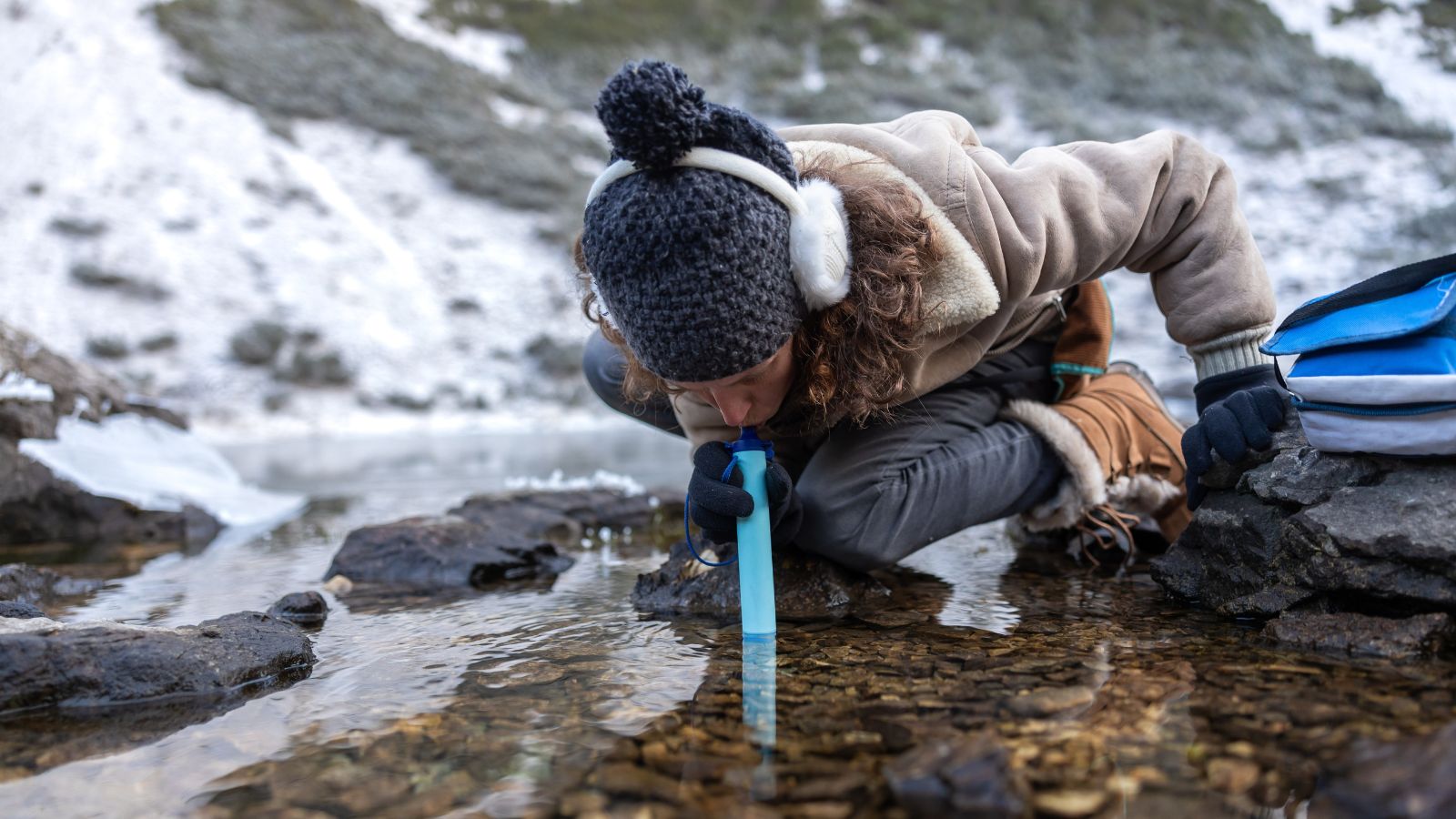
As you probably know, water is one of the most important things to prioritize in times of crisis. Unfortunately, in some situations, clean water can be surprisingly hard to come by. In these situations, a portable water filter, such as a straw filter or a small pump system, can be a real lifesaver, as it can purify water from natural sources like rivers or lakes and allow you to drink safely.
Non-Perishable Food
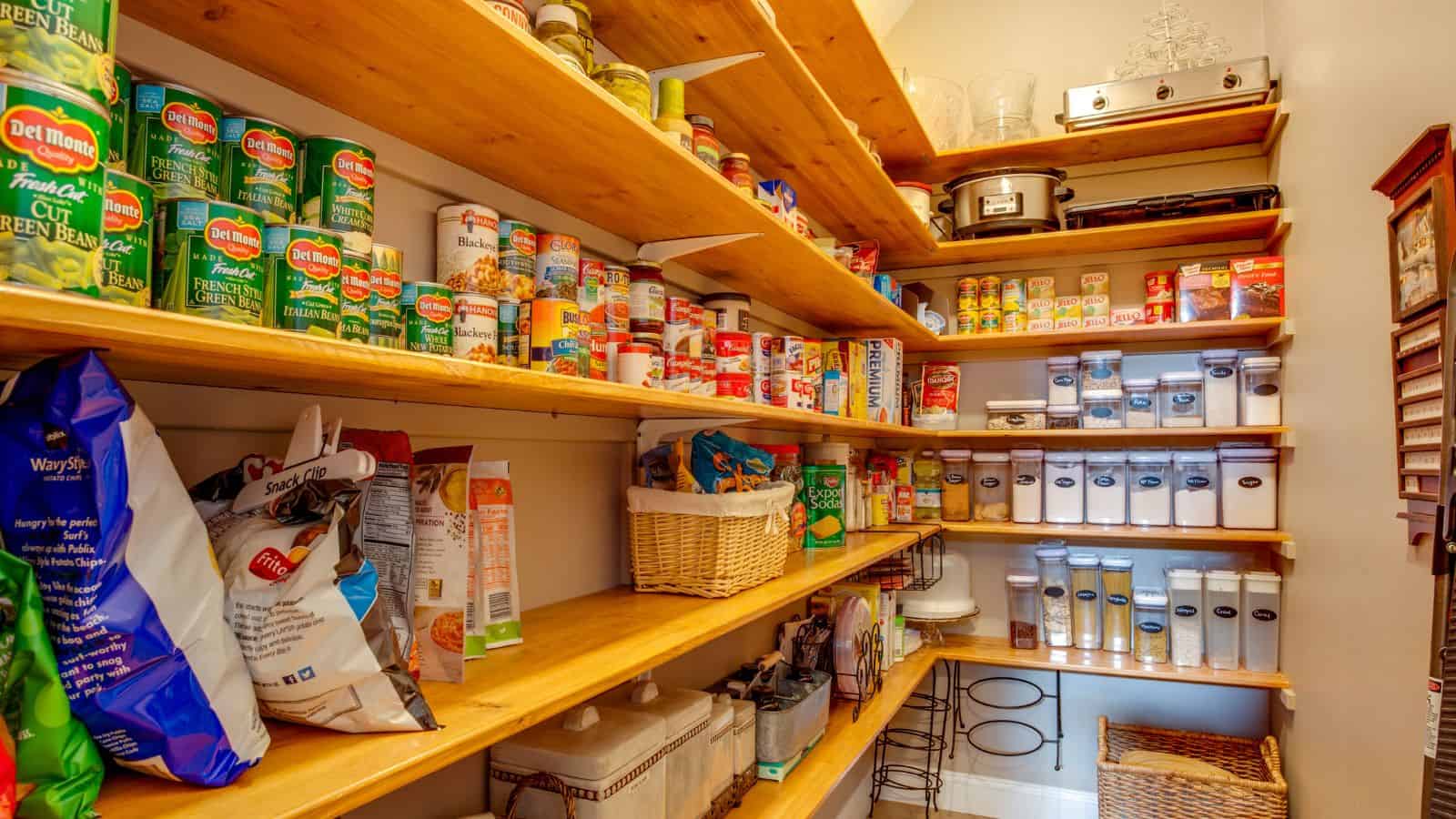
Thankfully, unlike water, you can live for up to a few weeks without food. But it’s still important to keep your belly full when you have an emergency situation to get through. That’s why it’s a good idea to stock up on non-perishable food that can keep you nourished for long periods of time. Foods like canned goods, freeze-dried meals, and protein bars are easy to store and have a long shelf life, making them great options.
First Aid Kit
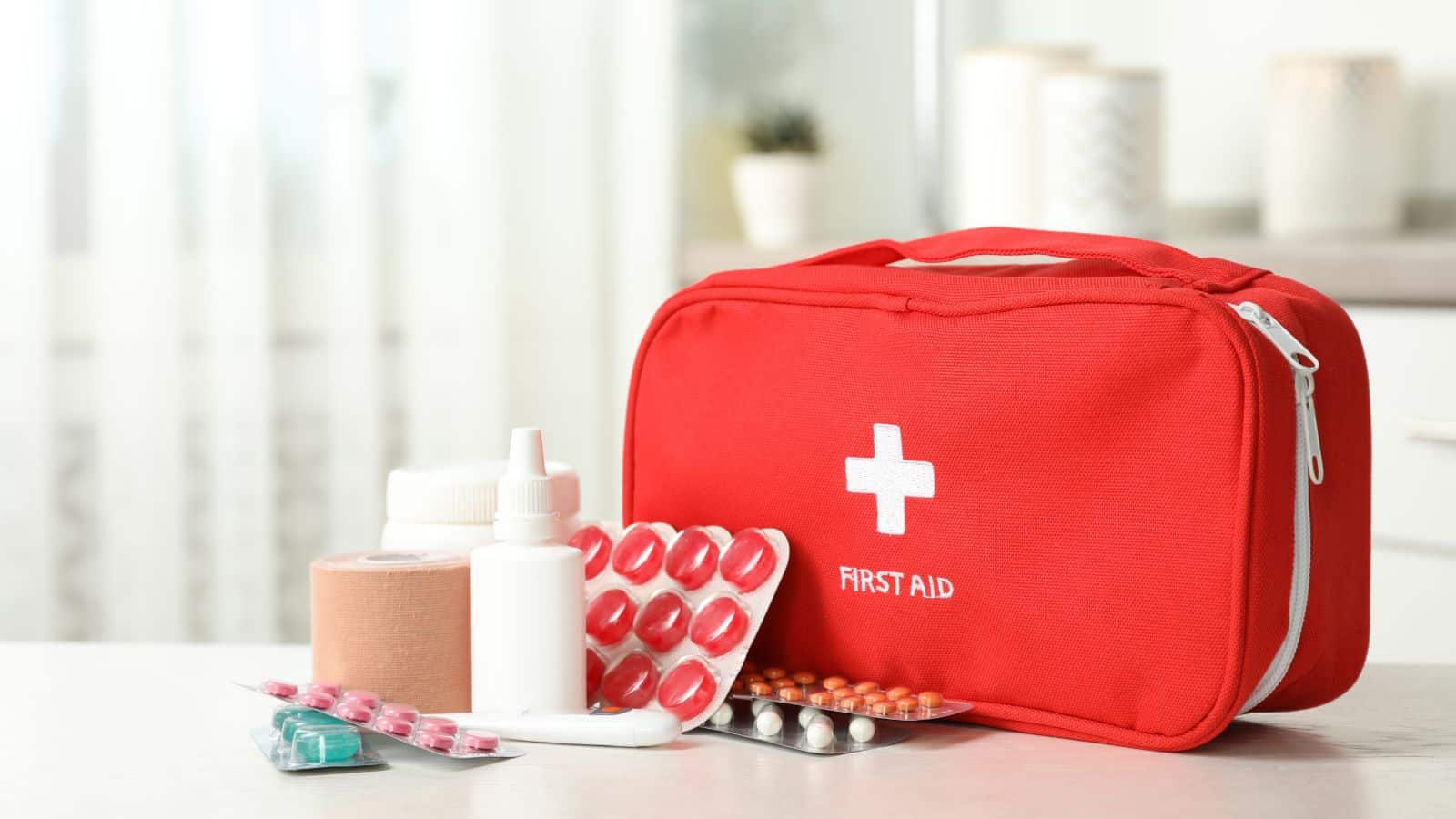
It’s quite common to suffer from minor injuries and other health issues when disaster strikes, so a well-stocked first aid kit is a must for getting by until professional help arrives. It should include basics like bandages, antiseptic wipes, pain relievers, and medical tape. If possible, add any personal medications or supplies you might need too.
Flashlight and Extra Batteries
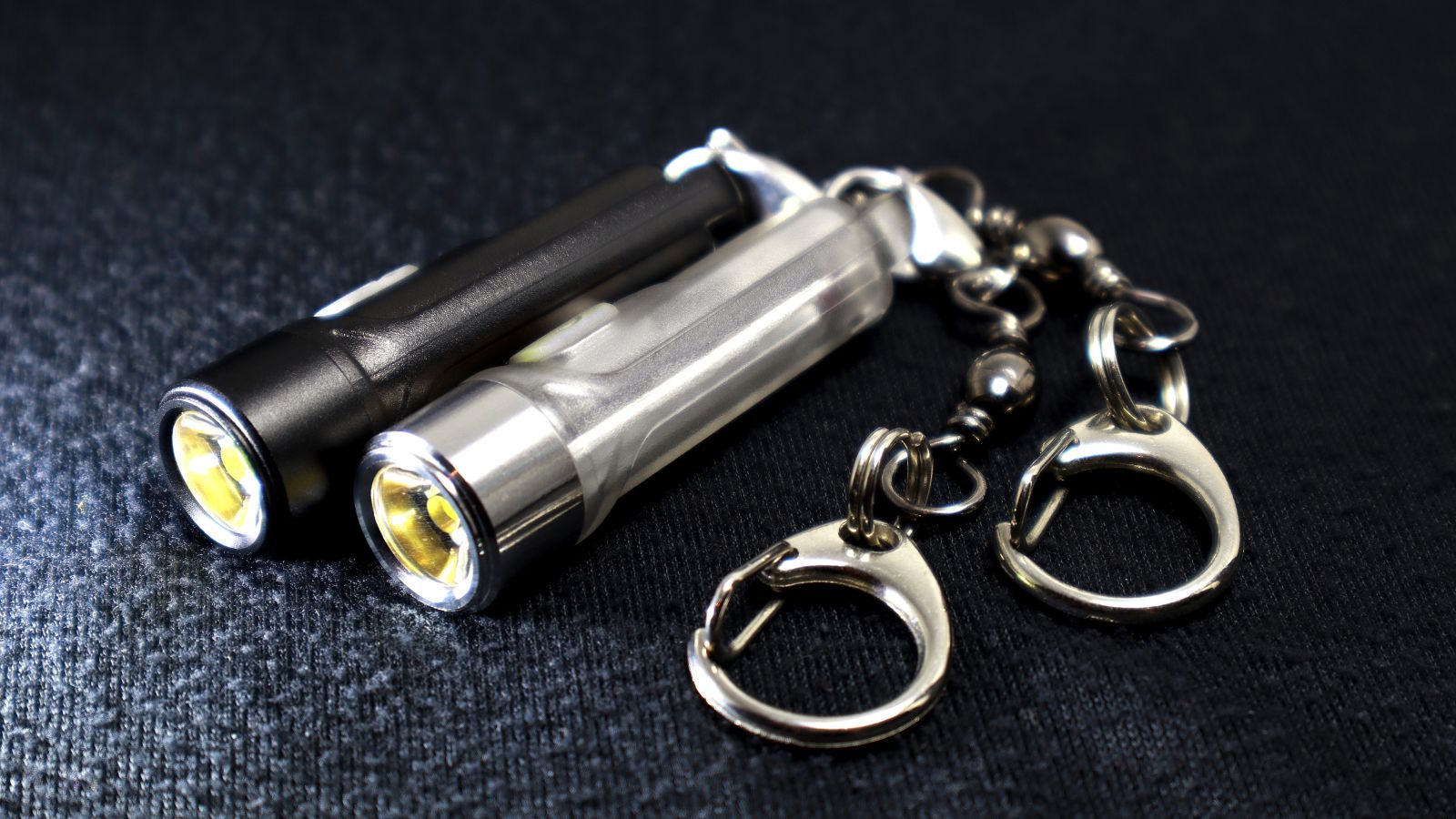
If the power goes out, you could be pretty lost without a reliable flashlight. This trusty tool will help you navigate safely in the dark and find your way to safety. LED flashlights are some of the best to go for, as they’re energy-efficient and provide bright, long-lasting light.
Keep extra batteries stored in a waterproof container to ensure your flashlight works when you need it most.
Multi-Tool
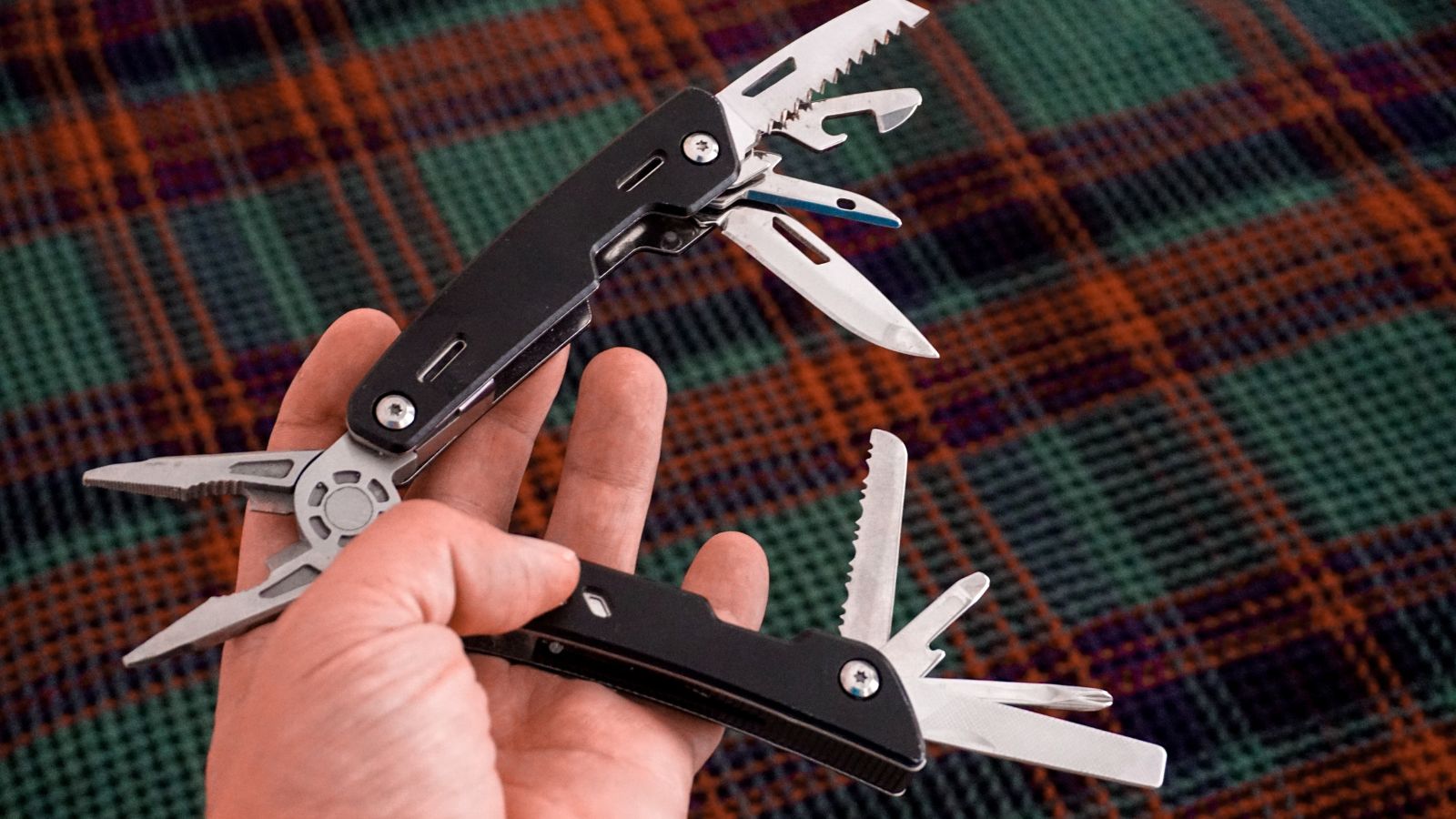
If you’ve never heard of a multi-tool before, it’s a compact lifesaver in emergencies, offering features like pliers, screwdrivers, a knife, and more. It’s incredibly useful for tasks like opening cans, cutting rope, or making small repairs, meaning it can replace several single-purpose tools in your emergency kit.
Emergency Blanket
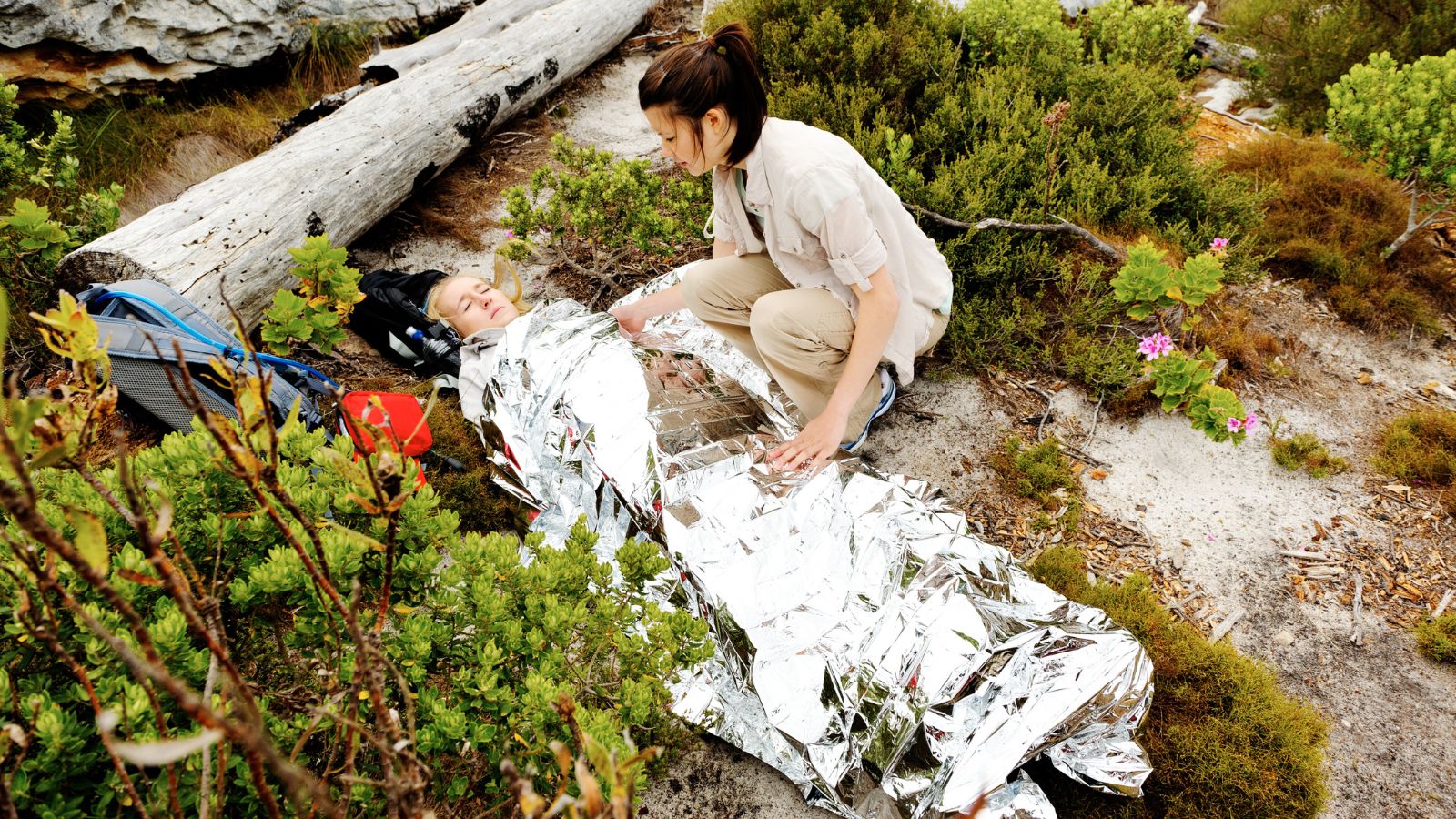
Emergency blankets, which are often made of Mylar, are lightweight and designed to retain body heat. This makes them a very important part of your emergency kit, especially if you’re in very cold conditions or need protection against wind and rain. These blankets are compact enough to fit in a backpack or glove compartment, making them an easy item to keep on hand for unexpected situations.
Solar-Powered Charger
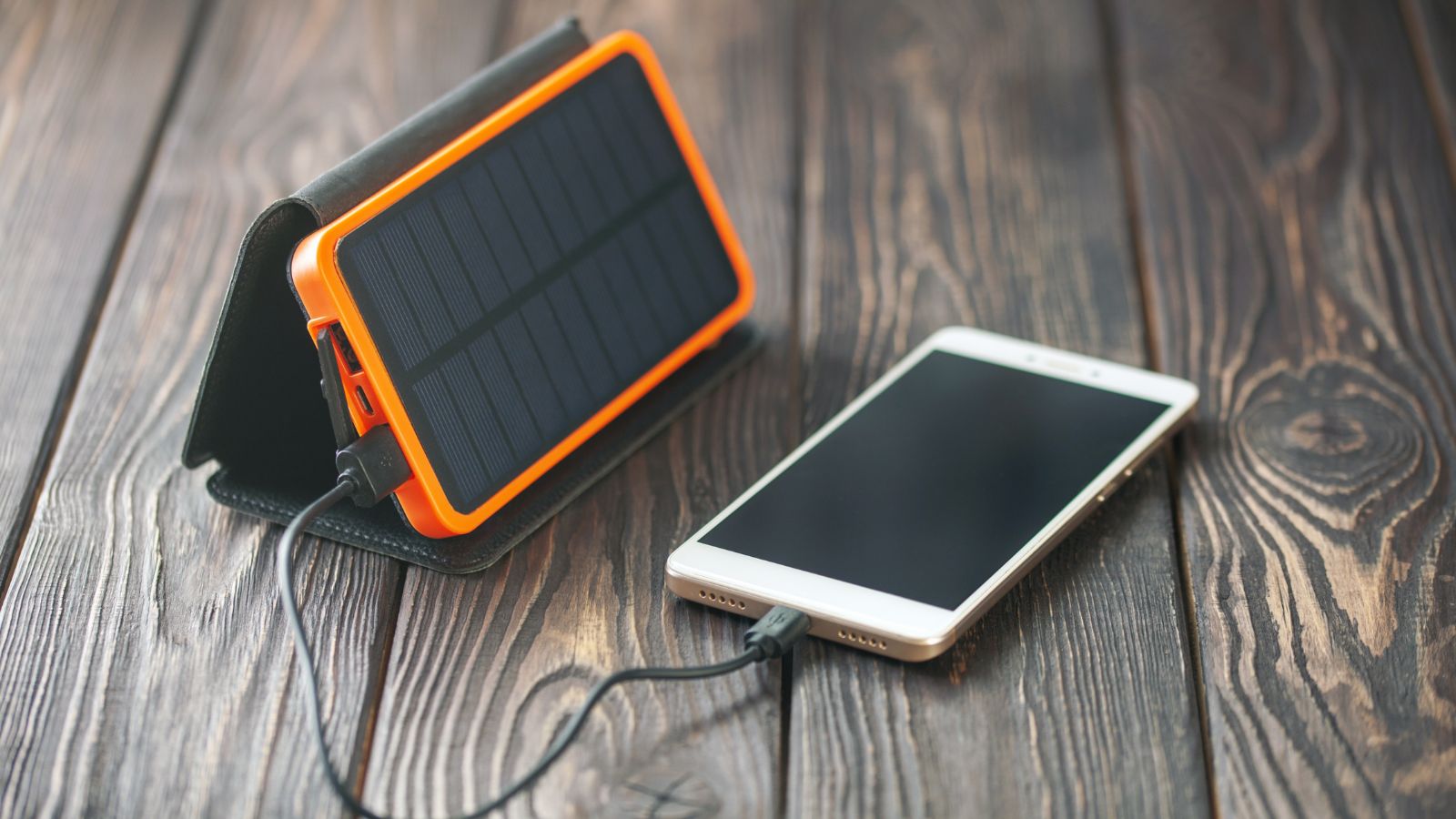
These days, it’s easy to take our online devices for granted. But in emergency situations, you may not have access to power or connection, which can put you at even greater risk of harm. A solar-powered charger ensures your devices won’t run out of battery. These chargers work by converting sunlight into power, making them ideal for situations where electricity isn’t available.
Water Storage Containers
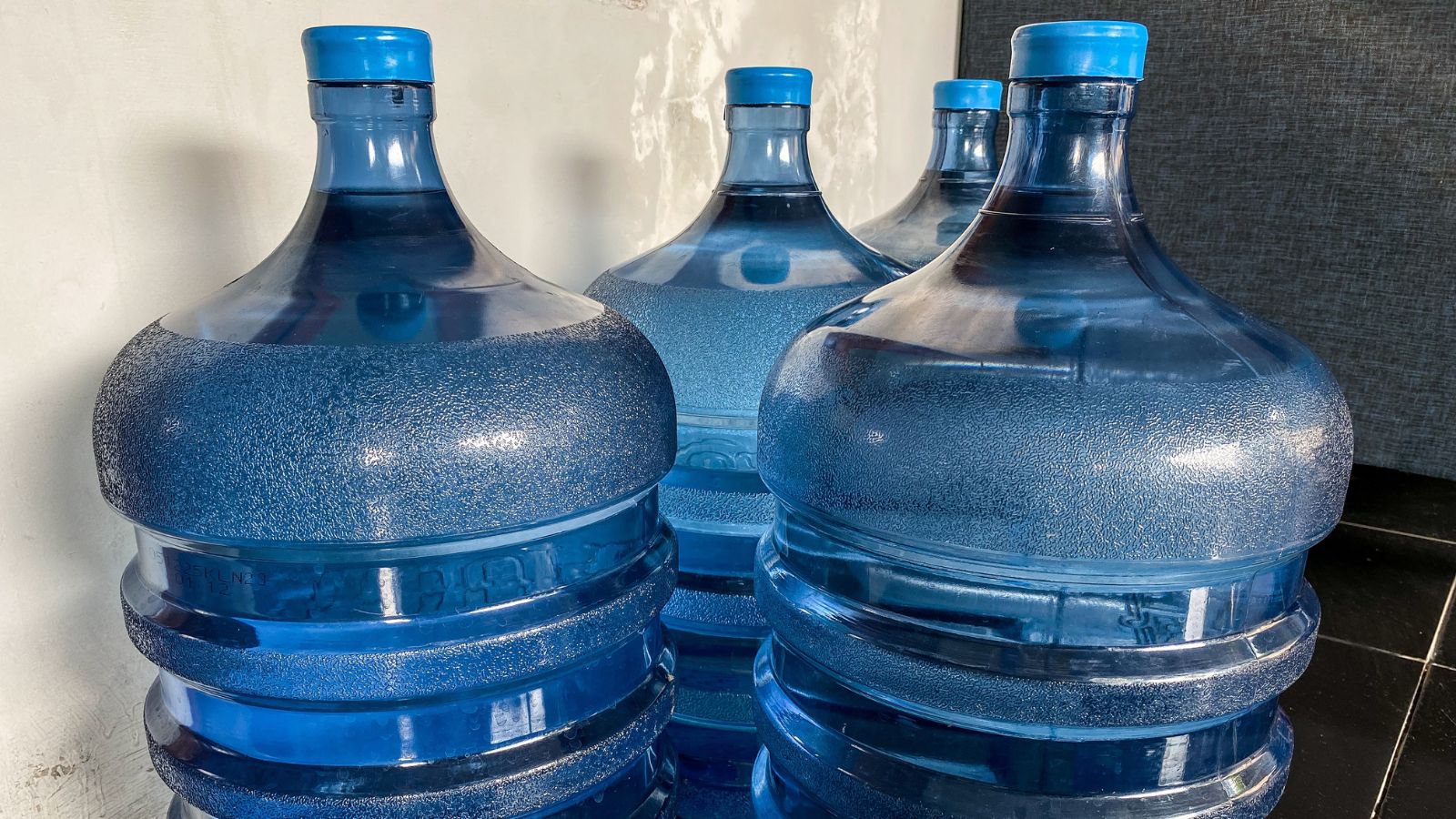
We mentioned portable water filters earlier, but clean water isn’t a whole lot of use if you can’t store it. Collapsible water storage containers or large jugs with spouts allow you to store an impressive amount of water for drinking, cooking, and cleaning. It’s best to look for food-grade containers that are easy to transport and refill as needed.
Fire Starter
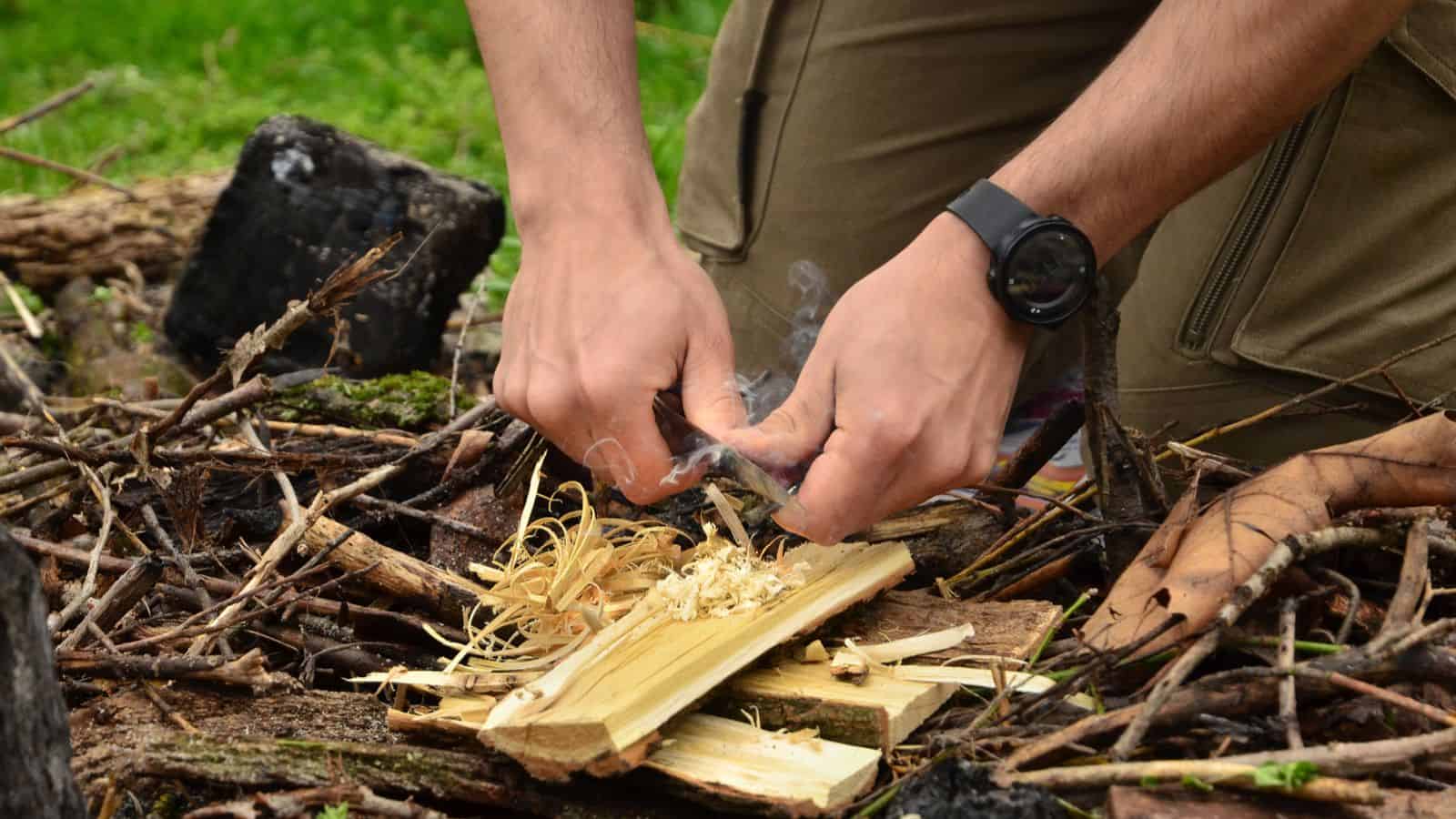
If you’re planning a camping or hiking trip, it’s a good idea to prepare yourself with some kind of fire starter. Having the ability to start a fire can keep you warm, cook food, and signal for help if you run into trouble. Some of the best options are waterproof matches, a magnesium fire starter, or a reliable lighter. You should also practice using your fire starter beforehand to make sure you’re confident enough to use it properly when the time comes.
Dust Masks
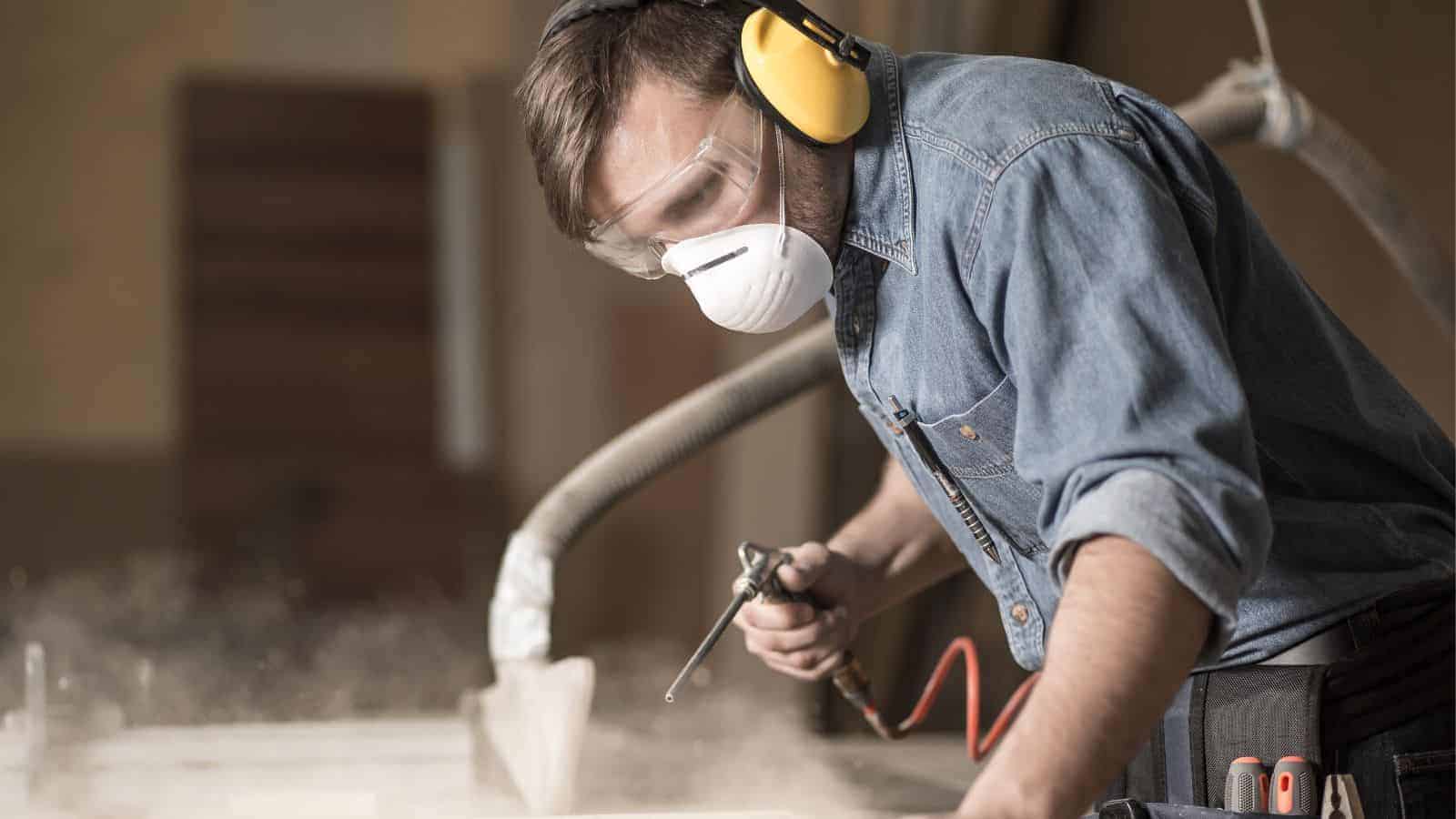
This may sound like a strange one, but during disasters like wildfires, earthquakes, or even pandemics, dust masks can play an essential role in protecting your lungs from harmful particles. N95 masks are particularly effective at filtering out small particles, but even basic masks are better than nothing.
Emergency Radio
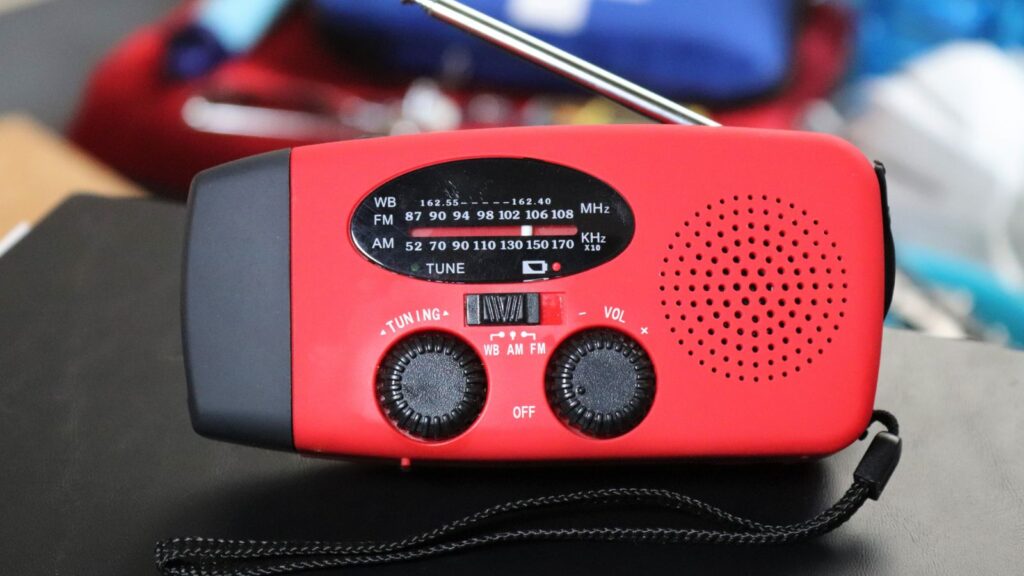
When things get serious, an emergency radio is crucial for staying informed about weather updates, evacuation orders, and other critical information. We recommend getting models that are battery-powered, solar-powered, or hand-crank operated to ensure you can use them even in a power outage. Radios with NOAA weather alerts are especially useful for natural disasters.
Rope or Paracord

Even if you’ve never had use for a sturdy rope before, it can become a huge help in emergencies. You could use it to create shelter, secure items, or even as a makeshift clothesline. Paracord is another great option, as it’s lightweight and strong, making it an excellent choice for both urban and wilderness survival scenarios.
Duct Tape
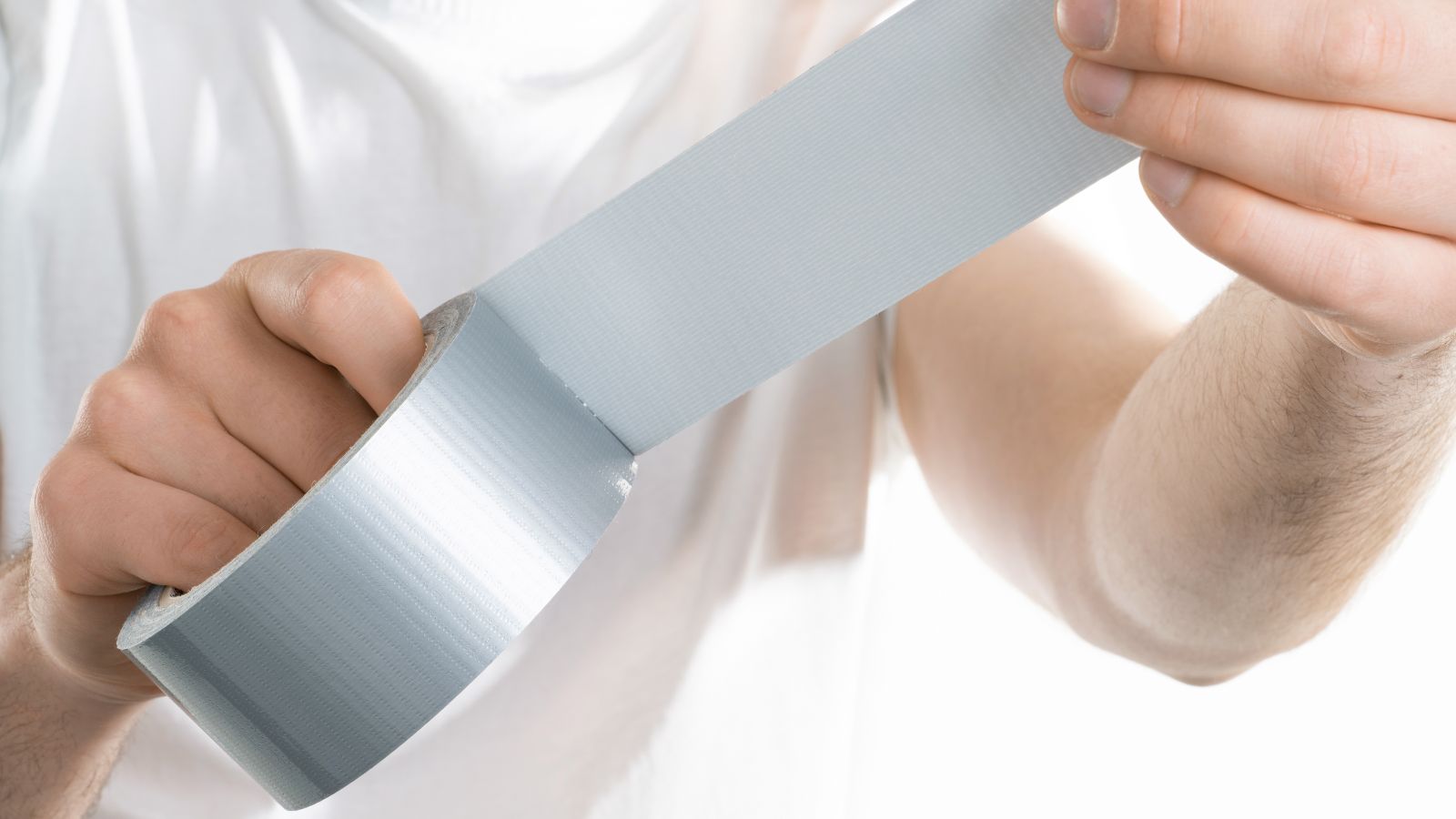
Duct tape may seem mundane enough in everyday life, but it really shines during times of crisis. This humble little tool can handle a variety of emergency tasks, from patching leaks to securing gear or creating makeshift bandages. A roll of duct tape doesn’t take up much space but can solve countless problems.
Portable Stove or Camping Stove
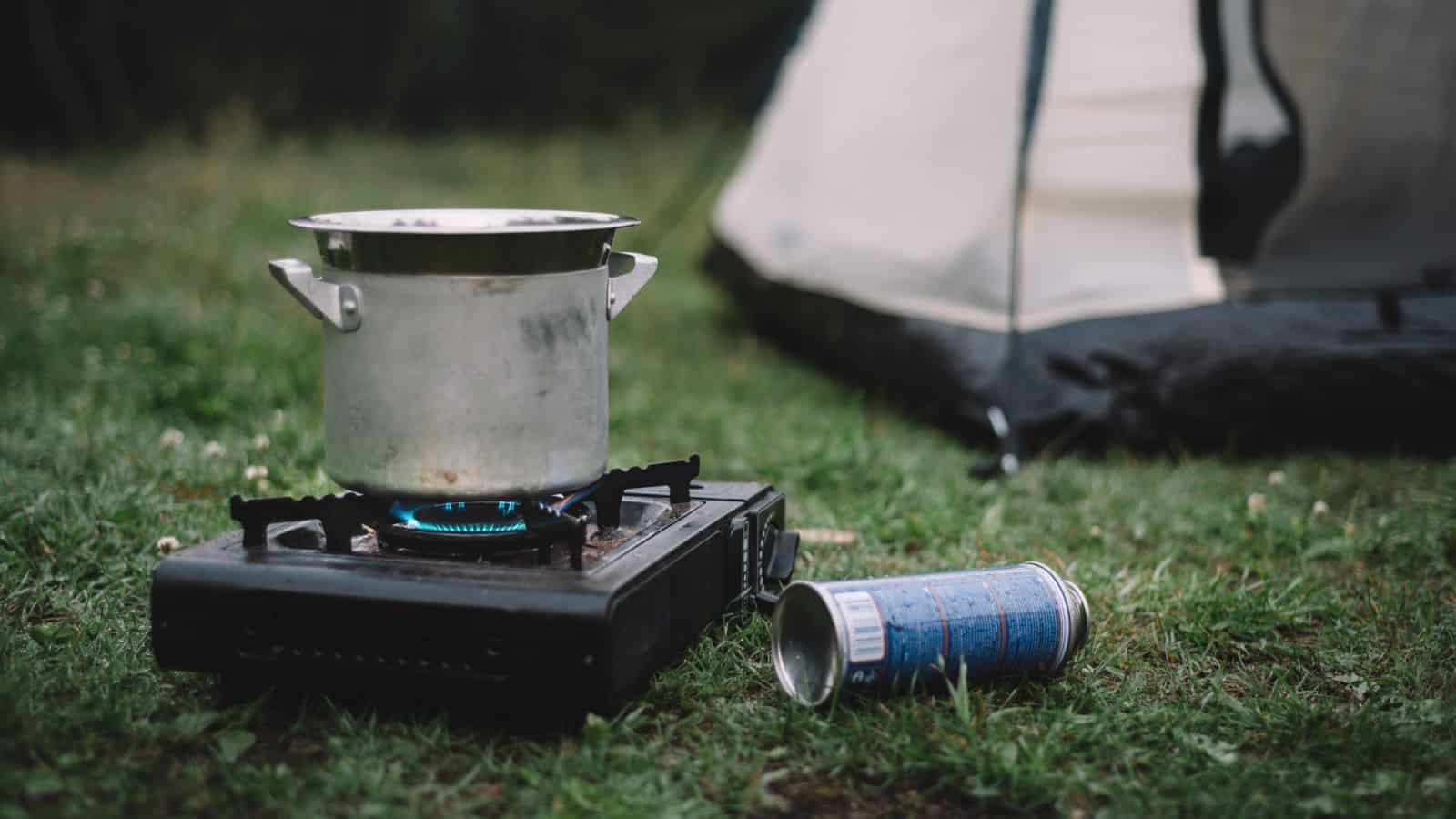
If you’re going to be in an emergency situation for a long time, a portable stove is a must-have. It allows you to cook food and boil water safely, keeping you fed and hydrated. Small camping stoves that run on propane or butane are easy to use and compact enough for emergency storage.
Identification and Important Documents

Things like IDs and medical records may be the last thing on your mind when a crisis hits, but keeping copies of these documents on hand can actually save you a lot of trouble.
These papers can help you access resources or prove your identity if you need to evacuate. Digital backups on a secure USB drive are also a good idea.
Whistle
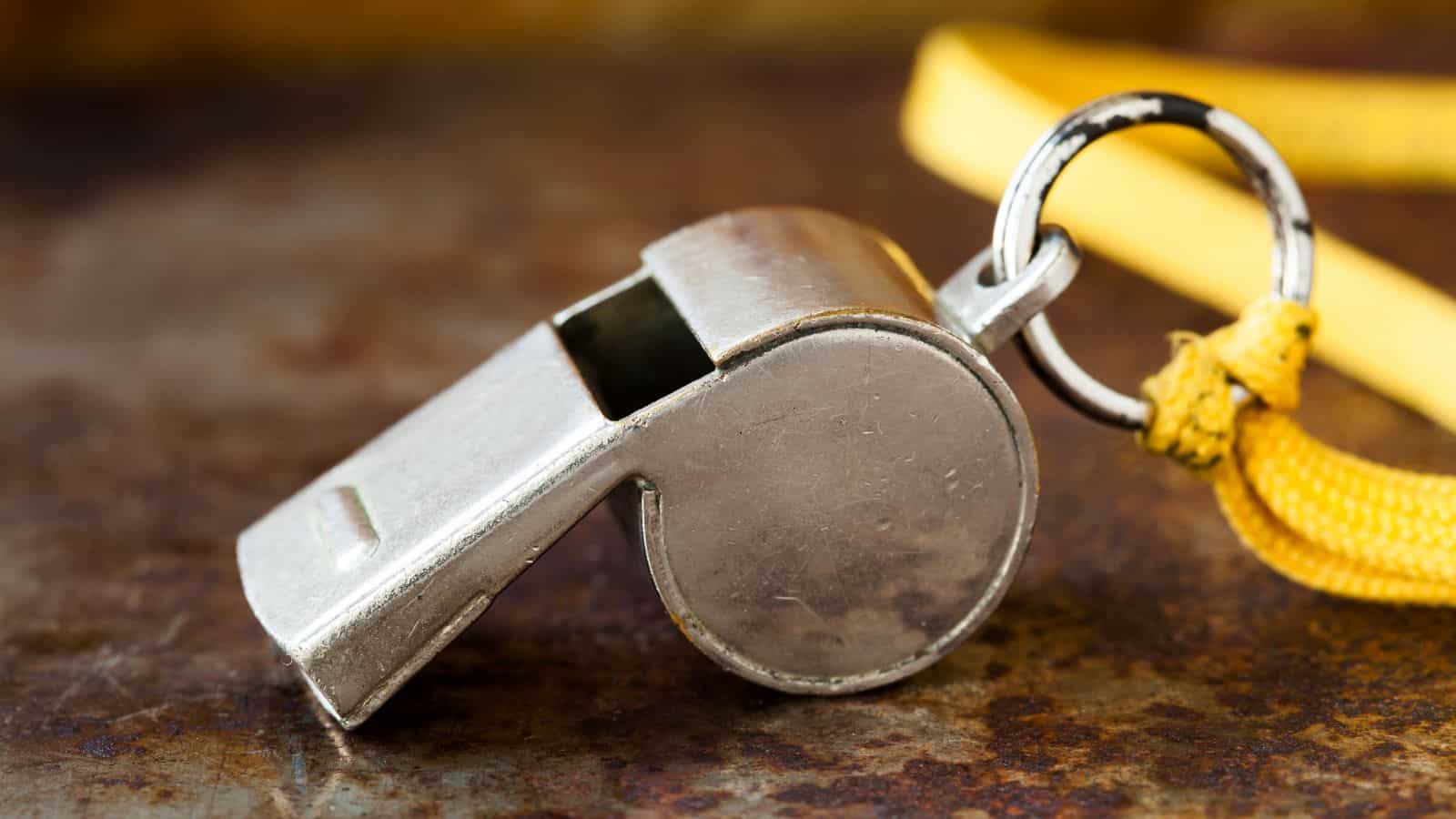
Never underestimate the power of an obnoxiously noisy whistle. A loud whistle can be a lifesaving tool when it comes to signaling for help in situations where your voice might not carry very far. They’re lightweight and easy to carry too, making them particularly useful in wilderness or disaster scenarios where rescuers need to locate you quickly.
Hand Sanitizer and Hygiene Supplies
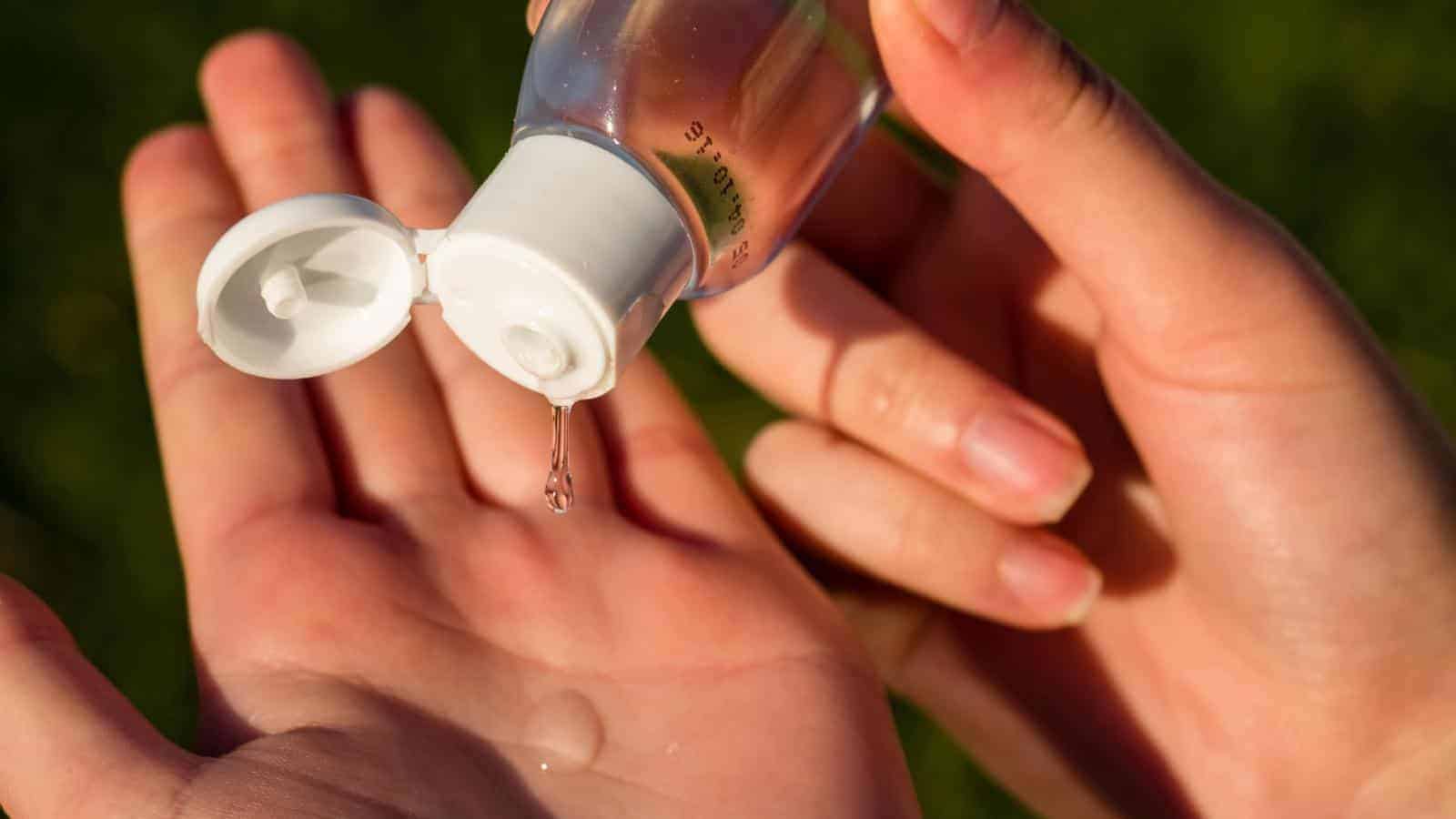
You may think that hygiene products aren’t particularly important when you’re in survival mode. But in reality, staying clean in a crisis isn’t just about comfort—it’s essential for preventing illness. It’s always a good idea to pack hand sanitizer, biodegradable soap, and moist towelettes to maintain basic hygiene when running water isn’t available.
Warm Clothing

Even if it feels warm in the daytime, you never know when you could be caught out by freezing cold nights or sudden temperature drops. Having extra layers, like thermal socks and a weather-resistant jacket, can keep you warm and dry even in extreme conditions. Ideally, you should choose compact, lightweight clothing that’s easy to pack but provides effective insulation.
Maps and Compass
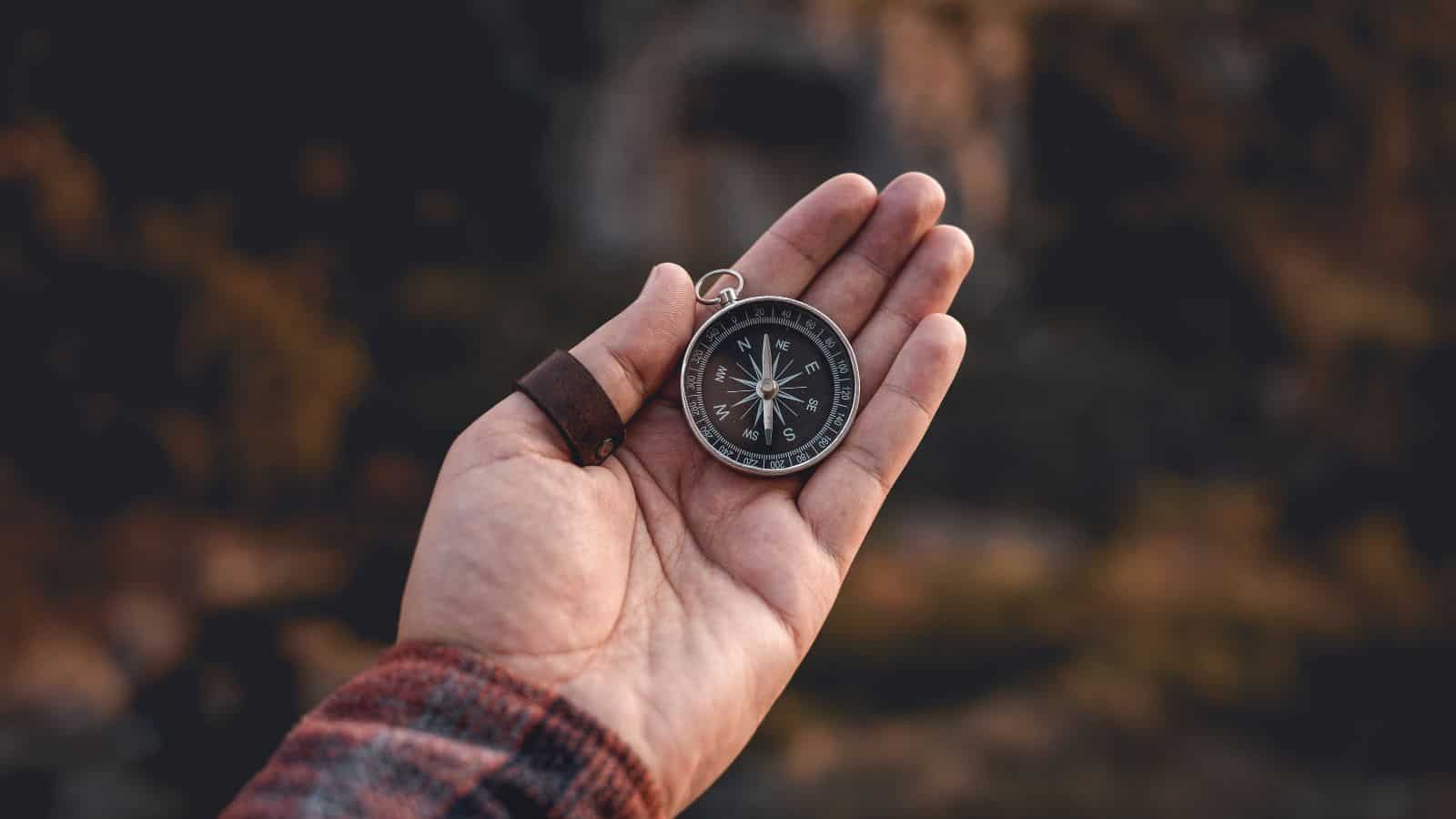
If you’re in a situation where GPS fails or isn’t accessible, our old school friends can really you out. A physical map and compass may feel outdated in this day and age, but they’ll allow you to find your way through unfamiliar terrain without much trouble.
Knowing how to use these tools beforehand is just as important as having them. Keep maps of your local area and any routes you might need in your emergency kit to ensure you won’t get lost even when technology isn’t an option.
